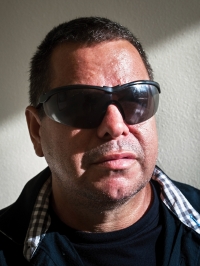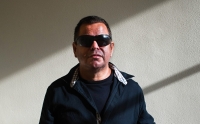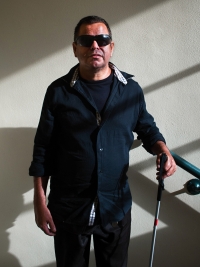You should call the bread as bread, and wine as wine

Download image
Juan Carlos González Leiva was born on March 5, 1965 in a poor agricultural settlement called Colorado, Cuba. He was the sixth of eight children. His father worked at a sugar cane plantation and earned 20 US cents. As a result of the difficult birth, Juan Carlos was almost blind from birth, and at the age of twenty-one, hard work on the plantation completely deprived him of his sight. Despite his condition, he graduated from law school in December 1996. During his studies, he wrote twice a letter to Fidel Castro, calling on the leader to respect the human rights. In 1998, he founded the Brotherhood of the Independent Blind and the Cuban Human Rights Organization. In March 2002, Juan Leiva was arrested, interrogated and imprisoned for two years. He was continuously tortured in prison, and repeatedly reacted with a protest hunger strike. He was sentenced to four years in April 2004 and served two years in a home arrest due to his serious health condition. Gradually, the blind human rights activist became one of the most famous Cuban dissidents. Despite imprisonment, torture and intimidation, he persistently organized the opposition and passed on information about the situation in Cuba.


